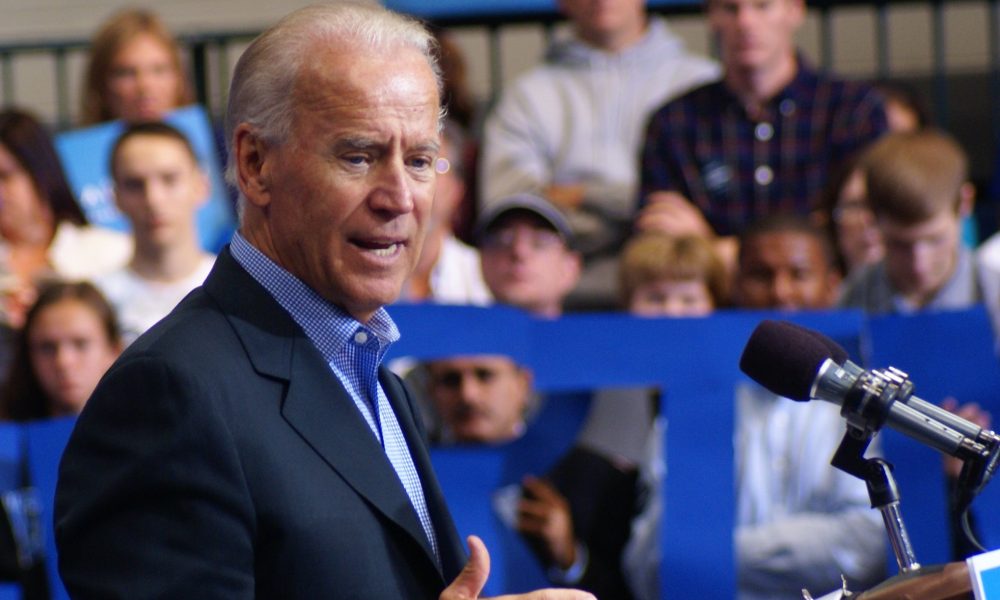A top White House official is touting President Joe Biden’s marijuana pardons and scheduling directive among the administration’s top accomplishments in 2022 as the year comes to an end.
Domestic Policy Council Director Susan Rice said on Thursday that the president’s cannabis clemency and review moves have helped address the country’s “failed approach to marijuana” and represent key parts of the administration’s “remarkably productive year.”
Rice has repeatedly highlighted Biden’s pardons, which affect Americans who’ve committed federal marijuana possession offenses, as well as those who violated the law in Washington, D.C. She was among various officials who cheered Oregon’s governor for providing state-level relief following Biden’s call-to-action, for example.
On Thursday, Rice, who previously served as national security advisor under the Obama administration, listed the marijuana pardons and administrative scheduling review as one of 12 major accomplishments in 2022.
The administration “addressed our failed approach to marijuana by pardoning all federal and D.C. simple marijuana possession offenses, urging governors to pardon state and local offenses, and starting the administrative process of the Departments of Justice and Health and Human Services reviewing how marijuana is scheduled,” the blurb says.
8. Addressed our failed approach to marijuana by pardoning all federal and D.C. simple marijuana possession offenses, urging governors to pardon offenses, and starting the process of @TheJusticeDept and @HHSGov reviewing how marijuana is scheduled.
— Susan Rice (@AmbRice46) December 29, 2022
The White House similarly held up Biden’s cannabis moves as “top accomplishments” for the administration in a separate post last month.
Meanwhile, a bipartisan group of 29 congressional lawmakers from both the House and Senate sent a letter to the president last week, asking that he formally back federal marijuana legalization as the administration carries out the cannabis scheduling review.
The letter was sent to the president and the key cabinet officials following a pair of major setbacks for advocates, with lawmakers failing to attach marijuana banking and other reforms to either the National Defense Authorization Act (NDAA) or omnibus appropriations legislation this month.
President Biden took an overdue step this year to end the federal government’s failed prohibition of cannabis. But we’ve got work to do. @RepBlumenauer & I led a bipartisan group of lawmakers urging @POTUS to support efforts to federally legalize marijuana.https://t.co/YqqZrBW9NF
— Elizabeth Warren (@SenWarren) December 29, 2022
While the lawmakers didn’t request that Biden take administrative action to unilaterally facilitate legalization, it does underscore an eagerness among supporters for the White House to play a more proactive role in advancing reform.
U.S. Health and Human Services (HHS) Secretary Xavier Becerra, who was CCed on the letter, recently tweeted a link to a Marijuana Moment article that discusses the president’s administrative cannabis scheduling directive.
“We’re going to take a look at what science tells us and what the evidence tells us,” Becerra, who has a considerable record supporting cannabis reform as a congressman and as California’s attorney general, said at the recent overdose prevention event. “That will guide what we do—and we hope that will guide what the federal government does.”
Following the president’s October announcement, the secretary said that the department would “work as quickly as we can” to carry out the scientific review. And he’s already discussed the issue with the head of the Food and Drug Administration (FDA) to that end.
Separately, the White House drug czar said recently that that the president’s action was “historic,” adding that there are “clearly” medical benefits of cannabis.
Like HHS, DOJ has similarly committed to quickly carrying out the separate scheduling review the president directed, which could result in a recommendation to place cannabis in a lower schedule or remove it altogether, effectively legalizing the plant under federal law.
The president also officially signed a marijuana research bill into law this month, making history by enacting the first piece of standalone federal cannabis reform legislation in U.S. history.
A series of polls have shown that Americans strongly support the president’s pardon action, and they also don’t think that marijuana should be federally classified as a Schedule I drug.
Kentucky Governor Educates Police About Medical Marijuana Executive Order As Activists Press Lawmakers To Pass A Comprehensive Bill
Photo courtesy of Flickr/Marc Nozell.
Read the full article here









